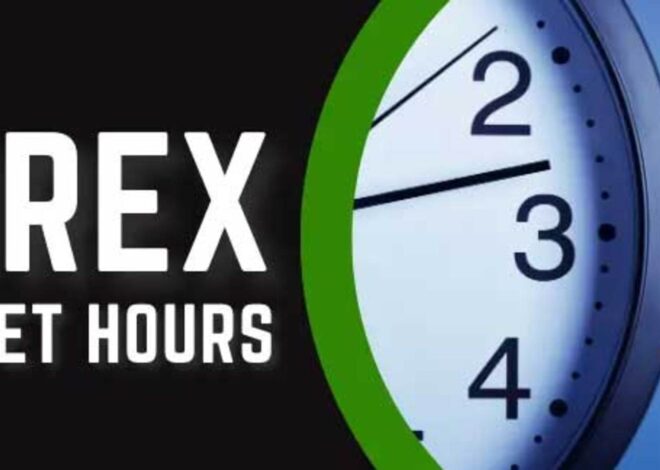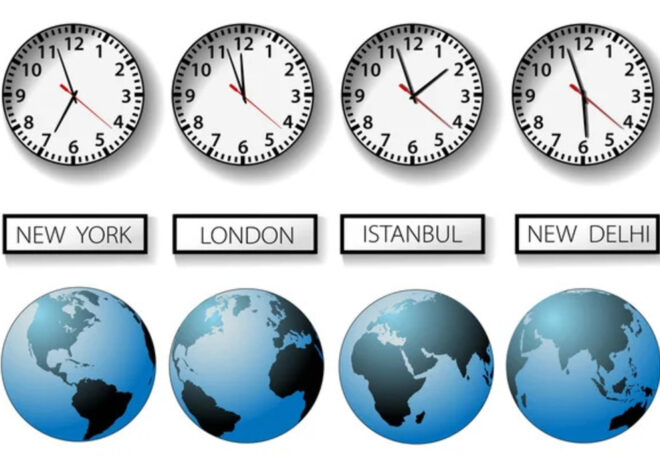
When Does Forex Close
Forex trading is a dynamic and constantly evolving market that operates round the clock, providing opportunities for traders worldwide. Understanding the intricacies of Forex market hours is essential for maximizing trading potential and minimizing risks. This article will delve into the various aspects influencing when the Forex market closes, offering insights and practical tips.
Understanding Forex Market Hours: A Comprehensive Guide

The Forex market operates 24 hours a day, five days a week, divided into several trading sessions that correspond to major financial centers around the globe. These sessions overlap, allowing traders to engage in transactions at almost any hour of the day.
Key Trading Sessions: When Does Forex Open and Close?

The Forex market is segmented into four major trading sessions:
| Trading Session | Opening Time (GMT) | Closing Time (GMT) |
|---|---|---|
| Sydney | 10:00 PM | 7:00 AM |
| Tokyo | 12:00 AM | 9:00 AM |
| London | 8:00 AM | 5:00 PM |
| New York | 1:00 PM | 10:00 PM |
- Sydney Session: Begins the trading day, often with lower volumes.
- Tokyo Session: Involves significant trading of the Japanese Yen.
- London Session: Known for high volatility and liquidity, the London session overlaps with both the Sydney and New York sessions.
- New York Session: The final major session of the day, characterized by high trading volumes, especially during the overlap with London.
Global Time Zones: Impact on Forex Trading Hours

The global nature of Forex means that trading times vary significantly based on local time zones. For traders, this can create both opportunities and challenges.
- Localized Timing: Traders need to convert GMT times to local times to effectively plan their trading activities.
- Market Volatility: Different sessions bring varying levels of volatility, with the London and New York sessions typically experiencing the highest activity.
Practical Tip:
Use a Forex market hours converter to determine the exact session times in your local timezone. This will help you track when to enter and exit trades effectively.
Daylight Saving Time: Adjustments in Forex Trading Hours

Daylight saving time (DST) can significantly affect Forex trading hours. As countries shift their clocks forward or backward, the opening and closing times of trading sessions can vary.
- Changes in Schedule: Generally, the Forex market does not observe daylight saving time. Traders must be aware of when their local time changes to adjust their trading schedules accordingly.
- Impact on Sessions: For example, when the U.S. and Canada shift to DST, the overlap between New York and London sessions can vary by an hour.
Example of DST Impact:
- Before DST: New York session opens at 1:00 PM GMT.
- After DST: New York session opens at 12:00 PM GMT.
Weekend Break: When Does Forex Market Close Weekly?

The Forex market is closed on weekends, from Friday evening until Sunday evening. Specifically, trading stops at 10:00 PM GMT on Friday and resumes at 10:00 PM GMT on Sunday.
- Market Closure: This weekend break allows traders to assess their strategies without the pressure of market changes.
- Reopening: When the market opens again, traders often see a surge in activity, especially during the first few hours.
Practical Tip:
Plan your trading strategy ahead of the weekend. Consider closing positions on Friday to avoid potential gaps when the market reopens.
Final Thoughts: Navigating Forex Trading Hours Effectively

Understanding when the Forex market closes is crucial for effective trading. By familiarizing yourself with the trading sessions, the impact of global time zones, and the effects of daylight saving time, you can better navigate this complex market.
Here are some key takeaways:
- Know Your Sessions: Familiarize yourself with the four major trading sessions and their characteristics.
- Stay Informed: Keep track of daylight saving time changes to adjust your trading schedule.
- Leverage Downtime: Use weekends for reflection and strategic planning, as this is when the market is closed.
- Utilize Tools: Use market hours converters and trading calendars to stay organized.
By implementing these strategies, traders can enhance their chances of success in the Forex market. The key is to remain vigilant about timing and to adapt to the ever-changing landscape.



I didn’t know that Forex is open 24 hours! This will help me plan my trades better.
Knowing when to trade can help avoid losses. Thanks for the insights!
It’s interesting to see how local time affects trading. I need to pay more attention to this.
Great tips on using a market hours converter. I’ll definitely start using one!
The section about daylight saving time is useful. I often forget about those changes.
Understanding the different trading sessions can really make a difference in trading strategies.
This article explains the Forex market hours really well. It’s important to know when the market is open.
“I appreciate the breakdown of sessions, especially the New York one. High volumes are exciting!”
“The weekend closure gives me time to reflect on my strategies. Very helpful!”